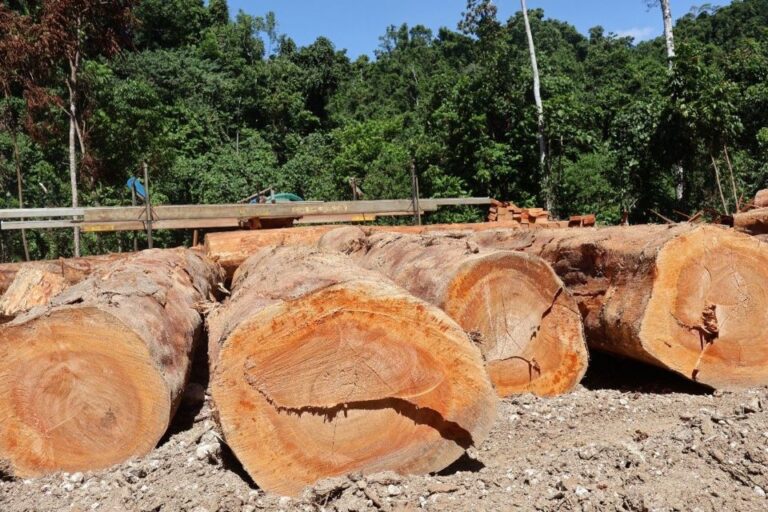THE Ministry of Forestry and Research has embarked on its 100 days priorities as mandated under the Government for National Unity and Transformation (GNUT) has kicked start with log export monitoring and compliance checks.
The Ministry has been critized by the Finance Minister, Manasseh Sogavare on the floor of the parliament for failing to address unaccounted revenue in the forestry sector.
Urging the Forestry Minister to take immediate action to address these discrepancies and ensure proper tracking and accountability.
In an issued statement, Forestry Secretary Richard Raomae says monitoring of log exports and compliance has been a priority ever since, it is the continuing reduction of the ministry’s budget and the lack of serious consideration in terms of incentives that creates the setback.
“Likewise, it is my personal agenda since been in the forestry sector for the past decades, this is no new issue and upon taking up the role as Permanent Secretary it is a key priority focus for me.
“I believe that the country is losing millions of dollars in revenue both to the SIG in terms of export duty and the resource owners in terms of royalties from the lack of proper monitoring, carrying out of quality control and log export checks.”
Mr Raomae then acknowledges the GNUT government for prioritising and reflecting this in its 100 days’ program.
“This is what the ministry should be doing for the past 10 or so years to ensure that revenue generated from the forestry sector reflects the true value of our logs export and revenue beneficiaries both SIG and resource owners; so maximum benefit is received from the forest resources accordingly,” he adds.
The Forestry Secretary explains that log export monitoring and compliance includes various important activities such as 10 percent volume checks to ensure less discrepancies in log scaling, 100 percent check during loading to ensure consistency in approved consignments.
And species check to ensure correct log species are recorded accordingly, as different log species have different determine value. This enables quality and compliance checking when doing log grading.
Maintaining the status quo on these very important procedures is paramount, thus frequent field audits on active concessions is a must in capturing this loss in revenue, he further adds.
But Mr Raomae said, according to his knowledge, proper log export monitoring stopped way back in year 2009 when the AusAid funded forestry management program that supports the ministry in quality control and monitoring of the logging industry winds down its assistance to the ministry.
Since then, the ministry failed to implement these key functions due to limited government support to the ministry’s budget as well as continuous delay in enabling key logistic components including fuel to ensure timely attendance to ships loading logs in the various parts of the country.
Cutting off of overtime allowances for the field officers to manning this due diligence checks is another setback that also deters our loss in the revenue collection then, he explains.
Mr Raomae said whilst this is evidently a big hinderance, with the limited resources the ministry has, the eminent priority now is to ensure that the ministry achieves between 70-80 percent of the 10 percent log volume checks during the remaining quarters of this year.
He continued on to say that this should not only be a 100 days’ program but an active ongoing activity that needs support in terms of budget increase, timely provision of key logistic components as well as provision to re-instate overtime incentive for field officers respectively.
This will sure be the only way to reduce potential revenue leakages in the forestry sector going forward, urges PS Raomae.
He adds apart from this, the ministry is also progressing on other important priorities such as the forestry bill 2024 which is now in its final drafting stage and other related legislative reviews to ensure effective sustainable management of the countries forest resources now and into the future.
Source: MoFR PRESS




